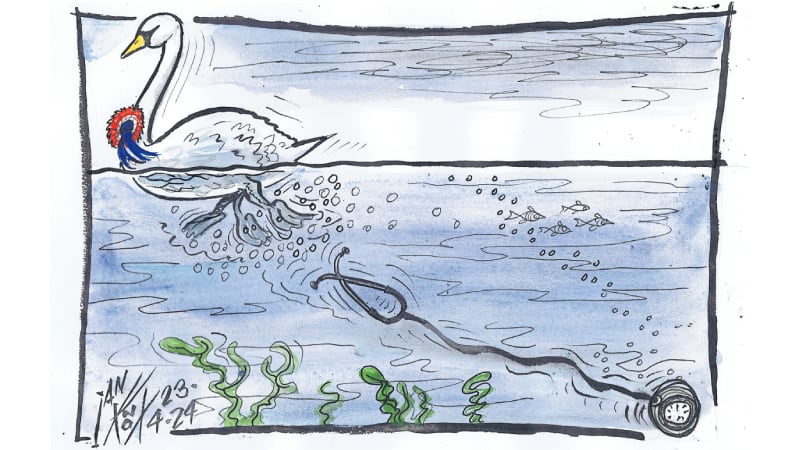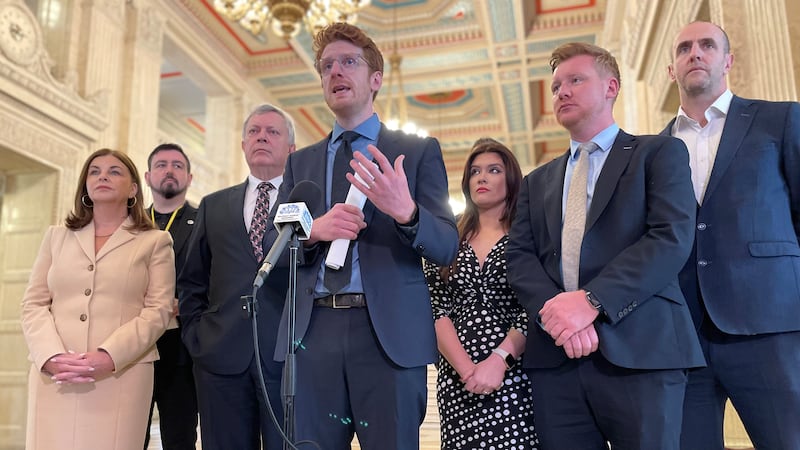I write as a pastor, a victims’ campaigner and a former UDR soldier, all three requiring close contact and community involvement. Through faith and church life I am shown the compassionate nature of our citizens. Through the victims’ sector I am reminded of the brutality and wickedness of mankind, and through engagement with former security force personnel I am confronted with the sense of neglect and loneliness experienced by many.
At present some sections of our community are engaged in thought-provoking debate – the biggest direct engagement of our people since the Good Friday Agreement. As the weeks continue interest grows in the NIO’s legacy consultation, man woman and child with interest and cause for concern with the Northern Ireland Troubles has come forward to let their voices be heard, feeding directly into the process through advocacy organisations such as ourselves.
I am disappointed by the response of our so-called Church leaders. Over many troubled years clergy from the three main Churches stood in homes across this country burying loved ones who had been murdered. They couldn’t even engage with FRPU, one of the biggest victims’ groups in the country. Not one single leader was available to meet us. Today it saddens me to hear that some leaders, facilitators and ministers, are traveling south to hear the Pope. Will they discuss reconciliation? A reconciled people? What does reconciliation look like?
While they rush south they neglect Northern Ireland victims, the dove has been sent out, it unfortunately hasn’t returned. Where is the olive branch?
True scriptural reconciliation changes hearts and that’s what we need, true heart felt sorrow and repentance for what was visited upon the innocent.
I implore our Church leaders to look out beyond the pulpit and the back pew, engage with your flock, listen to your people and community, hear what victims and grassroot Protestant believers want, articulate their views through the power of the gospel. Then only then can you seek reconciliation, having sought and been given the views of your collective community who has suffered, are still suffering and will continue to suffer unless we deal with the legacy of the past.
PASTOR BARRIE HALLIDAY
Markethill, Co Armagh
Quite unfortunate when sport and politics collide
I note with interest that a debate is tarnishing Limerick’s epic win in Sunday’s All-Ireland Hurling Final over the singing of Sean South by the team and the fans.
It’s quite unfortunate when sport and politics collide in this country, certain media commentators sit like Dickens’s vengeful hag, Madame Defarge, waiting by the guillotine for guilty heads to roll into the basket.
The song is sung to the air of Roddy McCorley [yet another rebel song] and contains two glaring errors – the attack on Brookeborough took place on New Year’s Day 1957 and South was not from Garryowen. Sean South was also slightly to the right of Genghis Khan in political terms and the song is typical of the genre where the memory is more ‘glorious’ than the actual reality of what occurred in Brookeborough.
However, we live in a society where there is a lack of understanding of the true meaning behind certain songs.
Take the Billy Boys. How many belting out this ‘classic’ would know that it celebrates the notorious, sectarian Glasgow razor gang boss, Billy Fullerton? Not, good King Billy.
We are now into the political ‘whataboutery’ of fighting over songs. We live in a society where shades of nationalism are now fighting over ownership of We Shall Overcome a la civil rights.
However, where do you draw the line? On Sunday at Croke Park the players paraded behind the Artane Band to The Bold Fenian Men and God Save Ireland, only to finish with the Soldier’s Song.
At this rate, next year’s All-Ireland Final will be all action, no sound, if we bring this debate to its logical conclusion.
FINNBARR O'FLOINN
Dunmurry, Co Antrim
Fighting for peace took its toll
I am not in agreement with the assertion by Alex Kane (August 17) in which he wrote that by John Hume not taking on the role of deputy first minister in 1998, gave the impression that he was not entirely committed to the process of government and institutions he had helped to create. In the mid-1980s Mr Hume came up with a radical new line. With a shifting political arena he decided that Sinn Féin, who were growing in popularity outside of their normal strongholds, should be engaged in the ongoing political process. He was savagely attacked by members of the SDLP who felt that, in lending credibility to Sinn Féin, he was electorally sabotaging his own party. This line was no great epiphany on the part of Hume. He pre-empted what was coming later. In the two elections after the GFA, the UUP and the SDLP power base had shrunk. Hume had been willing to see the SDLP, a party he helped to create, largely superseded by Sinn Féin as the price for peace. In the current Stormont Assembly, Sinn Féin have 27 seats, SDLP have 12 seats. John Hume was consumed by the revolution he had wrought.
JAMES G BARRY
Dublin 6W
DUP defined by what they are not
The DUP’s acknowledgment of the significance of this event, namely the Pope’s visit to Ireland, for many Catholics in the Republic and the north and their subsequent non-attendance struck a very discordant and distasteful note. Why is it when they refer to the Roman Catholic community I cannot help but think the words to be a sour and bitter description that likens this community to a foreign entity that is not welcomed nor trusted. The description resonates that this community has no right of residency within the state they have created for themselves alone.
The DUP are defined by what they are not. They are not Irish and they are not democratic as they fight to remain within an imposed artificial state with a diminishing majority. It is certainly not welcoming, nor embracing of other cultures or creeds other than
their own.
Behind their weasel words, the DUP has revealed itself as the party of baseless superiority; a party defined by its bitterness and fear. John Hume once said of this party that if the word no was removed from the English language the DUP would be speechless. Yet again they have demonstrated their contempt for the majority of the people of this island they live on, but will not share.
LAURENCE TODD
Belfast BT15
You can’t eat a flag
As much as I dislike the English Defence League, at least it engages with the working class.
Too many ‘socialist’ representatives are living in Ivory Towers and pontificating about ‘wage slavery’ – or any other Marxist-American soundbite that’s popular at university level. Northern Ireland has huge levels of child poverty. Yet, the big issue in this country according to Sinn Féin and the SDLP is gay marriage and flying the rainbow flag. Whatever happened to a flag not providing food?
DESMOND DEVLIN
Ardboe, Co Tyrone







